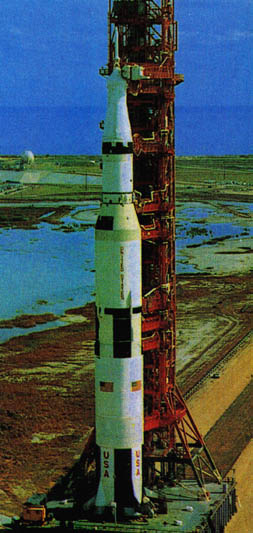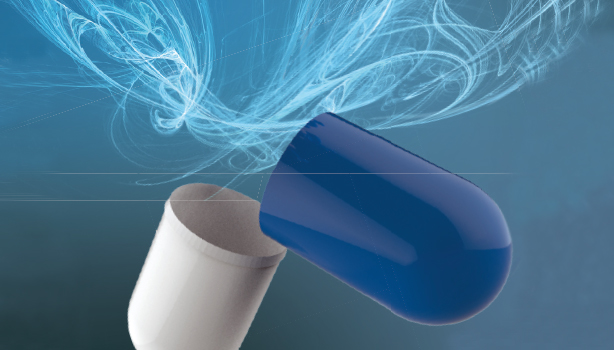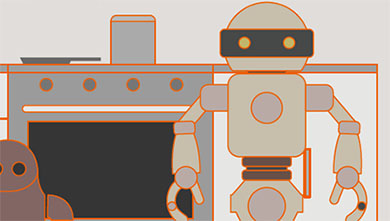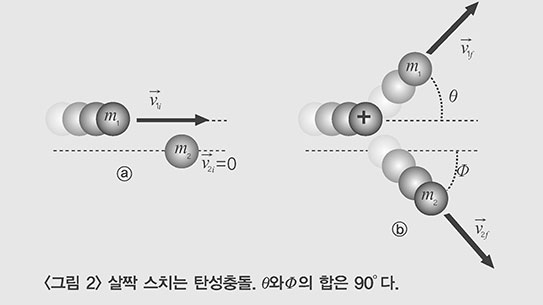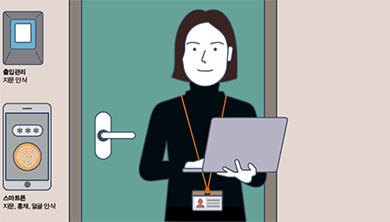1998년부터 ‘World View Pro’라는 인터넷 칼럼을 발간해 수많은 독자들에게 한국의 기존 언론이 다루지 않는 바깥 세계의 정보를 제공했다. 현재 인터넷과 사회의 상호작용에 대해 연구하고 있다.
지난 8월 우리나라 정부는 황우석 박사의 연구를 불허했다. 이는 과학에서 연구윤리 준수의 중요성을 일깨워준 사건으로 평가된다.
 In August, the South Korean government barred disgraced scientist Hwang Woo-suk from resuming his research into cloned human embryonic stem cells. Hwang has been on trial for more than two years on charges of breaking the law on research ethics and for misusing 2.8 billion won ($2.8 million) in state funds and private donations. He was once hailed as a national hero for bringing the country to the forefront of work on cloning and stem cell research aimed at finding cures for illnesses that current medicine cannot adequately treat.
In August, the South Korean government barred disgraced scientist Hwang Woo-suk from resuming his research into cloned human embryonic stem cells. Hwang has been on trial for more than two years on charges of breaking the law on research ethics and for misusing 2.8 billion won ($2.8 million) in state funds and private donations. He was once hailed as a national hero for bringing the country to the forefront of work on cloning and stem cell research aimed at finding cures for illnesses that current medicine cannot adequately treat.
“The decision took into account the chief researcher’s past dismissal from Seoul National University for manipulating research papers in 2005 and ethical questions in procuring human eggs and his indictment for illegally trading in human eggs,” the Minister of Health, Welfare and Family Ministry said in a statement.
While on trial, Hwang has returned to the lab to resume work on animal cloning with Sooam Biotech Research Foundation, that has cloned specialist sniffer dogs, endangered breeds and even occasional pets for private clients. Hwang’s colleague Dr. Hyun Sang-hwan at Sooam said the rejection came as a big disappointment for the team. “We expected our request to be accepted because the research plan we submitted has no flaw in terms of legal and administrative procedures,” he said by telephone.
In 2006, two landmark papers published by Hwang’s team on cloned human embryonic stem cells were withdrawn by the publisher Science, after the investigation panel of Seoul National University determined key data had been intentionally fabricated. An analysis by U.S. researchers late last year said that there is a possibility that Hwang may have inadvertently created the first human embryonic stem cells derived from human eggs alone. If it was true, it might be a quite meaningful discovery itself. While most South Koreans now see Hwang as a source of embarrassment rather than national pride, he still has thousands of supporters asking the government to give him a second chance. But we should not forget that research ethics is one of the most important factor in science.
지난 8월 대한민국 정부는 불명예를 안은 과학자 황우석 박사가 인간배아 복제 줄기세포 연구를 재개하지 못하도록 했다. 황우석 박사는 연구윤리 관련 법률을 어기고 국가 지원금과 사적인 기부금 280만 달러(약 28억 원)을 횡령한 혐의로 2년 넘게 재판에 회부된 상태다. 한때 그는 복제 연구와 줄기세포 연구를 통해 현재의 의학이 다루지 못하는 질병에 대한 치료방법을 찾는 일에서 한국을 가장 앞선 나라로 만든 국가적 영웅으로 칭송받았었다.
“이번 결정은 연구책임자가 과거 2005년의 연구논문을 조작하고 인간난자를 획득하는 과정에서 윤리적 문제를 제기해 서울대에서 해임된 사실, 그리고 불법적으로 인간난자를 유통시킨 사실과 관련해 기소됐다는 점을 고려해 내렸다”라고 보건복지가족부 장관이 성명에서 발표했다.
재판을 받는 동안 황 박사는 동물 복제와 관련된 일을 재개하기 위해 수암생명공학연구소에 들어갔으며, 그동안 마약탐지 전문견, 멸종위기에 처한 종(種), 심지어 개인고객을 위한 애완동물의 복제 연구를 해 왔다. 그의 동료인 수암연구소의 현상환 박사는 “정부의 불허 결정이 연구팀에 큰 실망을 주었다”고 말했다. 전화통화에서 그는 “우리가 제출한 연구계획서가 법적, 행정적 절차에 별 문제가 없어 요청이 허가될 줄 알았다”고 밝혔다.
2006년 서울대 진상조사위원회는 황우석 박사팀이 인간배아 복제 줄기세포에 대해 출판한 두 개의 논문에서 핵심적 실험데이터를 고의적으로 조작했다는 사실을 밝혀냈고 과학저널 ‘사이언스’는 두 논문을 취소했다. 지난해 말 미국 연구자들이 분석한 바에 의하면 황 박사가 우연히 인간난자에서 최초의 인간배아 줄기세포를 유도해 냈을 가능성이 있다. 만일 그것이 사실이라면 그 자체도 꽤 의미 있는 발견일 수 있다. 현재 대다수의 한국인들은 황우석 박사를 국가적 자존심이라기보다 당혹감의 근원으로 보고 있지만, 여전히 수천 명의 지지자들은 정부가 그에게 두 번째 기회를 주도록 요구하고 있다. 하지만 우리는 과학에서 가장 중요한 요소 중 하나가 연구윤리임을 잊어서는 결코 안 된다.
※ 기사 원문의 저작권은 로이터 통신에 있으며 중·고등 학생들에게 적합하도록 단어와 문장을 편집, 수정했다.
지난 8월 우리나라 정부는 황우석 박사의 연구를 불허했다. 이는 과학에서 연구윤리 준수의 중요성을 일깨워준 사건으로 평가된다.
 In August, the South Korean government barred disgraced scientist Hwang Woo-suk from resuming his research into cloned human embryonic stem cells. Hwang has been on trial for more than two years on charges of breaking the law on research ethics and for misusing 2.8 billion won ($2.8 million) in state funds and private donations. He was once hailed as a national hero for bringing the country to the forefront of work on cloning and stem cell research aimed at finding cures for illnesses that current medicine cannot adequately treat.
In August, the South Korean government barred disgraced scientist Hwang Woo-suk from resuming his research into cloned human embryonic stem cells. Hwang has been on trial for more than two years on charges of breaking the law on research ethics and for misusing 2.8 billion won ($2.8 million) in state funds and private donations. He was once hailed as a national hero for bringing the country to the forefront of work on cloning and stem cell research aimed at finding cures for illnesses that current medicine cannot adequately treat.“The decision took into account the chief researcher’s past dismissal from Seoul National University for manipulating research papers in 2005 and ethical questions in procuring human eggs and his indictment for illegally trading in human eggs,” the Minister of Health, Welfare and Family Ministry said in a statement.
While on trial, Hwang has returned to the lab to resume work on animal cloning with Sooam Biotech Research Foundation, that has cloned specialist sniffer dogs, endangered breeds and even occasional pets for private clients. Hwang’s colleague Dr. Hyun Sang-hwan at Sooam said the rejection came as a big disappointment for the team. “We expected our request to be accepted because the research plan we submitted has no flaw in terms of legal and administrative procedures,” he said by telephone.
In 2006, two landmark papers published by Hwang’s team on cloned human embryonic stem cells were withdrawn by the publisher Science, after the investigation panel of Seoul National University determined key data had been intentionally fabricated. An analysis by U.S. researchers late last year said that there is a possibility that Hwang may have inadvertently created the first human embryonic stem cells derived from human eggs alone. If it was true, it might be a quite meaningful discovery itself. While most South Koreans now see Hwang as a source of embarrassment rather than national pride, he still has thousands of supporters asking the government to give him a second chance. But we should not forget that research ethics is one of the most important factor in science.
지난 8월 대한민국 정부는 불명예를 안은 과학자 황우석 박사가 인간배아 복제 줄기세포 연구를 재개하지 못하도록 했다. 황우석 박사는 연구윤리 관련 법률을 어기고 국가 지원금과 사적인 기부금 280만 달러(약 28억 원)을 횡령한 혐의로 2년 넘게 재판에 회부된 상태다. 한때 그는 복제 연구와 줄기세포 연구를 통해 현재의 의학이 다루지 못하는 질병에 대한 치료방법을 찾는 일에서 한국을 가장 앞선 나라로 만든 국가적 영웅으로 칭송받았었다.
“이번 결정은 연구책임자가 과거 2005년의 연구논문을 조작하고 인간난자를 획득하는 과정에서 윤리적 문제를 제기해 서울대에서 해임된 사실, 그리고 불법적으로 인간난자를 유통시킨 사실과 관련해 기소됐다는 점을 고려해 내렸다”라고 보건복지가족부 장관이 성명에서 발표했다.
재판을 받는 동안 황 박사는 동물 복제와 관련된 일을 재개하기 위해 수암생명공학연구소에 들어갔으며, 그동안 마약탐지 전문견, 멸종위기에 처한 종(種), 심지어 개인고객을 위한 애완동물의 복제 연구를 해 왔다. 그의 동료인 수암연구소의 현상환 박사는 “정부의 불허 결정이 연구팀에 큰 실망을 주었다”고 말했다. 전화통화에서 그는 “우리가 제출한 연구계획서가 법적, 행정적 절차에 별 문제가 없어 요청이 허가될 줄 알았다”고 밝혔다.
2006년 서울대 진상조사위원회는 황우석 박사팀이 인간배아 복제 줄기세포에 대해 출판한 두 개의 논문에서 핵심적 실험데이터를 고의적으로 조작했다는 사실을 밝혀냈고 과학저널 ‘사이언스’는 두 논문을 취소했다. 지난해 말 미국 연구자들이 분석한 바에 의하면 황 박사가 우연히 인간난자에서 최초의 인간배아 줄기세포를 유도해 냈을 가능성이 있다. 만일 그것이 사실이라면 그 자체도 꽤 의미 있는 발견일 수 있다. 현재 대다수의 한국인들은 황우석 박사를 국가적 자존심이라기보다 당혹감의 근원으로 보고 있지만, 여전히 수천 명의 지지자들은 정부가 그에게 두 번째 기회를 주도록 요구하고 있다. 하지만 우리는 과학에서 가장 중요한 요소 중 하나가 연구윤리임을 잊어서는 결코 안 된다.
※ 기사 원문의 저작권은 로이터 통신에 있으며 중·고등 학생들에게 적합하도록 단어와 문장을 편집, 수정했다.






